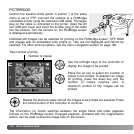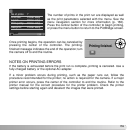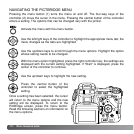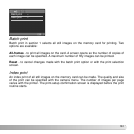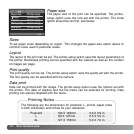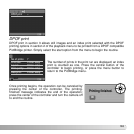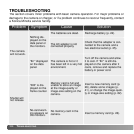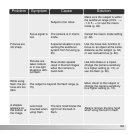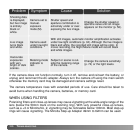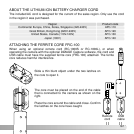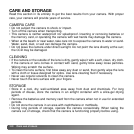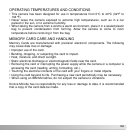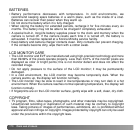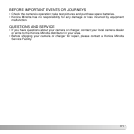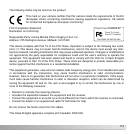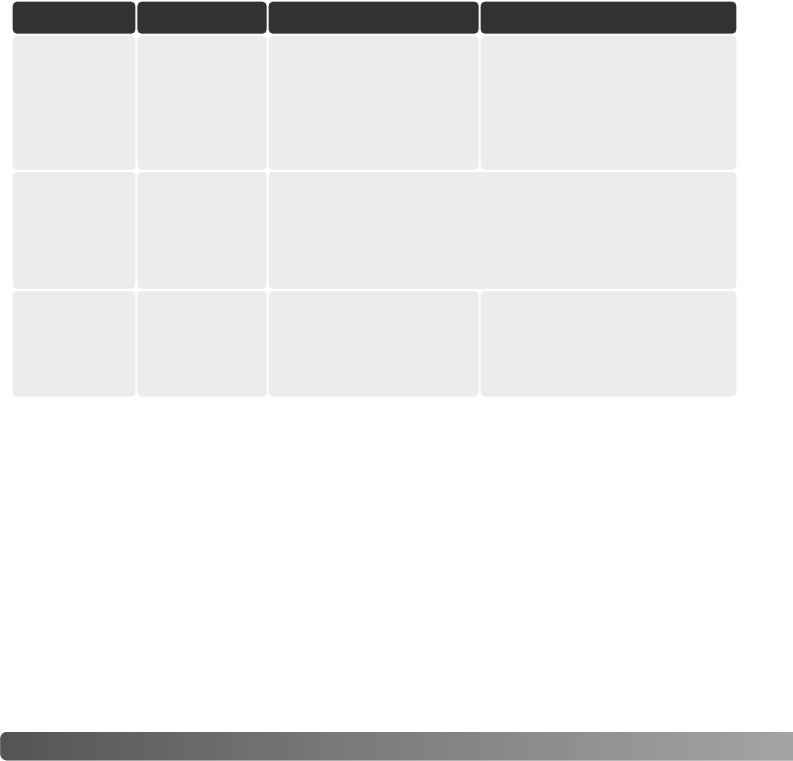
166
T
ROUBLESHOOTING
If the camera does not function normally, turn it off, remove and reinsert the battery, or
unplug and reconnect the AC adapter. Always turn the camera off using the main switch
otherwise the memory card may be damaged and camera settings reset.
The camera temperature rises with extended periods of use. Care should be taken to
avoid burns when handling the camera, batteries, or memory card.
Shutter speed and
aperture combination is
extremely under or over-
exposing the live image.
Change the shutter speed or
aperture value until an image
appears on the monitor (p. 56).
Shooting data
is displayed,
but live image
is entirely
black or
white.
Camera set to
manual-
exposure
mode (M).
Problem Symptom Cause Solution
Live image
turns black
and white.
Camera used
under low-light
conditions.
With still images, automatic monitor amplification activates
under low-light conditions (p. 34). Although the live image is
black and white, the recorded still image will be color. In
movie recording, the Night Movie mode will record black
and white images.
WHEN USING FILTERS
Polarizing filters and close-up lenses may cause vignetting at the wide-angle range of the
lens (below the 50mm mark on the zooming ring). With very powerful close-up lenses,
such as a +3 or Minolta No. 2, vignetting may be noticeable below 100mm. Most step-up
rings will cause vignetting. The Minolta Step-up Adapter 49mm to 62mm can be used.
Subject or scene is out-
side the metering range
of the camera.
Change the camera sensitivity
(p. 74) or the light levels.
Inaccurate
exposures
with very
bright or dark
scenes.
Metering-mode
indicator is
red.



